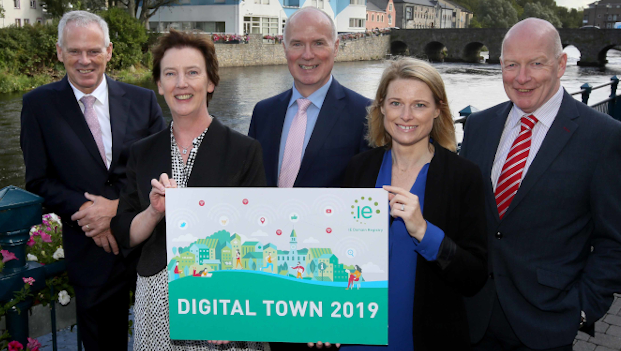There’s a wonderful folk/protest song called What you do with what you’ve got written by a man called Si Kahn, which has a chorus that ends with the following lines: “It’s not just what you’re given, It’s what you do with what you’ve got.”
One of the best interpreters of the song is Scottish folk musician Dick Gaughan who has featured it regularly in his live performances, such as this one.
I was reminded of those lines by a recent report on TechCentral.ie that Sligo had been named Ireland’s Digital Town 2019. Over the course of a few years, the town has attracted €225 million in investment through the establishment of the North West Tech Cluster, the development of 5G capable infrastructure, innovation and education supports for SMEs at IT Sligo and the creation of digital spaces, including The Building Block and The Landing Space.
It’s a significant achievement and one worthy of praise. But what brought Si Kahn’s song to mind were comments further down the article from Phil Prentice, chief officer of the Scotland’s Towns Partnership, who argued that towns that lack state-of-the-art digital infrastructure should concentrate on maximising their use of any existing assets.
“While it’s always preferable to have high-speed broadband, a town can digitalise what it has,” he claimed. The best way to start was to help businesses and citizens understand “how their lives can be simplified or made more efficient or cost-effective by using digital technology” because they had a tendency to “overstate” what was required to become digital.
David Curtin, CEO, IE Domain Registry, made a similar point, stating that “the vast majority of SMEs don’t do more online because of concerns about investments of time, money and skills”.
But their fears were unfounded, he added, because access to digital technology has vastly improved over the last decade. “It’s easier, faster and more affordable than ever before to get online, communicate with customers and start selling products and services.”
Missed connections
Curtin argued that waiting for the National Broadband Plan (NBP) “to create or implement the perfect digitalisation strategy is the wrong approach”. Instead, Irish towns should “help local businesses and community organisations understand and use digital technologies by focusing investment in skills training and education programmes. That way, they will see a much quicker social and economic returns on their investment”.
In making their argument, Prentice and Curtin both employed the phrase “the understanding gap”. Which set me to thinking. Why would there be such a thing? What creates an understanding gap? Why would SMEs have what appear to be unfounded concerns about the investment required to go online? Why would they believe that the NBP was necessary for them to implement a digitalisation strategy? Why should they be unable to understand and use digital technologies?
Is it really that much of a mystery? Could it be, perhaps, that the people responsible for digital technologies share some of the blame for the lack of awareness among businesses and organisations over how to use them? Might they have done a better job of giving people a practical understanding of what they could achieve with those technologies? Perhaps someone could have done a better job of communicating how to use the technologies rather than pontificate about their revolutionary capabilities or scaring people silly over the dangers of not deploying them?
Might the government have some culpability for giving the impression that the NBP will be the cure to all of Ireland’s digital ills? If so, why would small companies take a chance on something today that they have been led to believe is inadequate when they have been promised the all-singing, all-dancing solution is on it way?
Which leads to another question: when/if the NBP finally reaches all the parts it has promised to reach, will that be the magical solution for small businesses in Irish towns that have steered clear of digital technologies so far? Or will they still lack an understanding of how to employ it to achieve the goals it promises?
In other words, even if super-duper broadband arrives, will they have any greater understanding of what to do with what they’ve got?








Subscribers 0
Fans 0
Followers 0
Followers